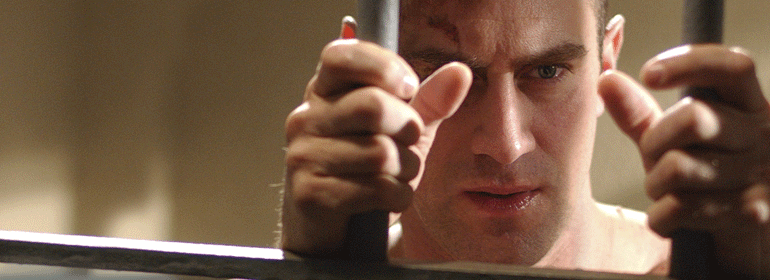The introduction of gay-only prisons in Turkey is either more discrimination against LGBTs there, or less. In the light of how queer prisoners are treated across the world, Rob Buchanan weighs up the odds.
The Turkish Justice Minister Bekir Bozdag has said the introduction of gay-only prisons in his country is aimed at “protecting convicts” from being attacked. But, given Turkey’s notorious intolerance for homosexuality, Turkish LGBT rights groups are concerned that it will further erode of gay rights throughout society.
Already gay inmates in Turkish prisons are often placed in solitary confinement for extended periods, for their own protection, but also as punishment by homophobic guards who see them as easy targets.
But it’s not only in Turkey that gay prisoners face major challenges. In prisons all over the world queers are often denied things like conjugal visits and special requirements for healthcare. HIV infection rates are nearly five times higher among gay prisoners in the US than in the general population. The National Commission on Correctional Health Care backs this up, saying that, “AIDS is the second most frequent cause of death in US prisons”.
As it is in Turkey, the only protective custody afforded to many gay prisoners across the world is isolation and solitary confinement, even if their crimes are comparatively minor. This can obviously be hugely psychologically damaging. Solitary confinement can also mean partial or total lack of access to training and education.
Sometimes gay prisoners are put in to protective housing rather than solitary confinement. This can sometimes mean that they housed with prisoners who have been segregated because of violence, mental disability or both. This leads to minor criminals being housed with killers and rapists in extra cramped conditions.
The risks faced by gay inmates are compounded by a lack of understanding from the institutions involved in their care. For example there is a misconception among many that gay men are the sole perpetrators of rape behind bars. But several studies including those by Human Rights Watch, found that: “The myth of the homosexual predator is groundless. Perpetrators of rape typically view themselves as heterosexual and, outside of the prison environment, prefer to engage in heterosexual activity. Although gay inmates are much more likely than other inmates to be victimized in prison, they are not likely to be perpetrators of sexual abuse.”
Prison human rights watchdog Just Detention International says that LGBT inmates are “among the most vulnerable in the prison population”. Amnesty International says that ‘out’ gay prisoners, or those identified as gay, are susceptible to “far higher levels of sexual abuse”.
Transgender prisoners are especially vulnerable, since in a majority of countries they are housed with prisoners of their birth gender rather than their gender identification.
A lot of people will say that LGBT prisoners, just like all other prisoners, are incarcerated because they have committed a crime; that just because they are queer doesn’t mean they should get to go to a holiday camp to hang out and have it easy until their stretch is over. However, homophobic violence and rape are not part of their punishment, while unequal access to health and education enjoyed by their straight peers is pure discrimination. Prisons are institutions run by the state and paid for by the taxpayer to punish and correct, not to torture, disenfranchise or abuse.
My own opinion is that there should be the option of segregated wings within the system for LGBT people who request it, and that the welfare of prisoners in those wings should be constantly monitored with the consultation of LGBT rights groups. I think segregation should be at the request of the prisoner, though, not enforced like some sort of ghettoisation, as is happening in Turkey. For example if I went to prison for let’s say the minor misdemeanour of not paying my TV license fee, I might prefer to be in general population with other criminals of the same level.
In contrast to the concerns raised by gay rights groups in Turkey about LGBT only prisons, in 2010 a transgender-only prison at Pozzale in Italy was welcomed by local LGBT groups for the security it would afford inmates.
We live in a culture where gay people are constantly playing second fiddle to their straight counterparts in regards to civil rights, healthcare, employment and education. So, are we shocked that when queers end up behind bars, there are further punishments for our difference? In the meantime we must look to Turkey and see if the introduction of gay-only prisoners there is one step further in the discrimination and victimisation of gay people, or as Minister Bekir Bozdag says, one step further in our protection.
© 2014 GCN (Gay Community News). All rights reserved.
